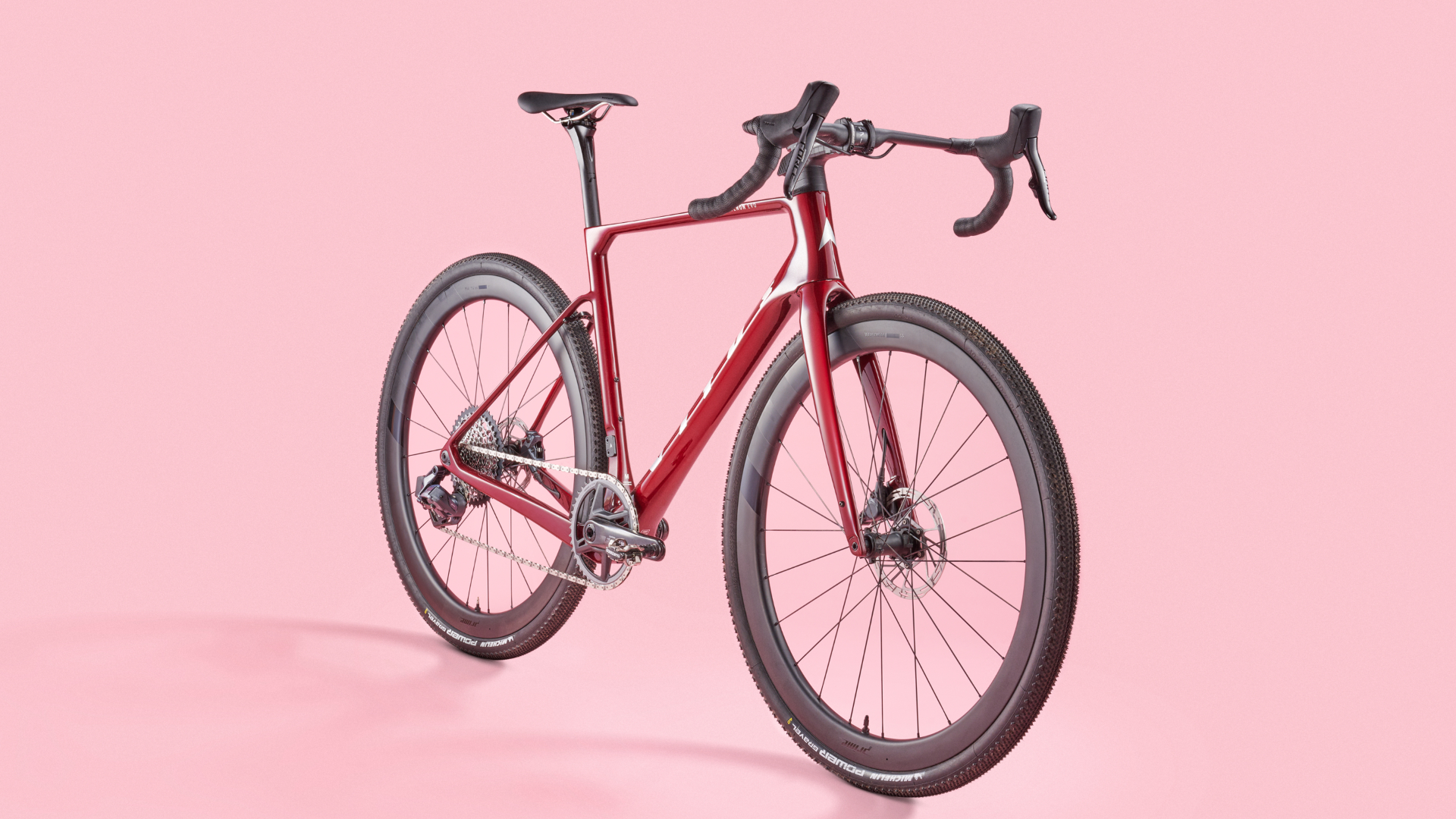
The Vitus Venon Evo is an all-road frameset that aims to blur the line between the best endurance road bikes and the best gravel bikes. It can accommodate tire widths from 28mm up to 45mm depending on the discipline that you want to ride. The Evo-GR comes with gravel specific groupsets, with the upper models in the range using aero components too, to keep it fast on those open gravel routes.
The gravel bike niche has found itself split into two, with the bikepacking side and the riders who want to cover ground quickly in a single day.
Vitus Venon Evo Force AXS gravel bike: construction
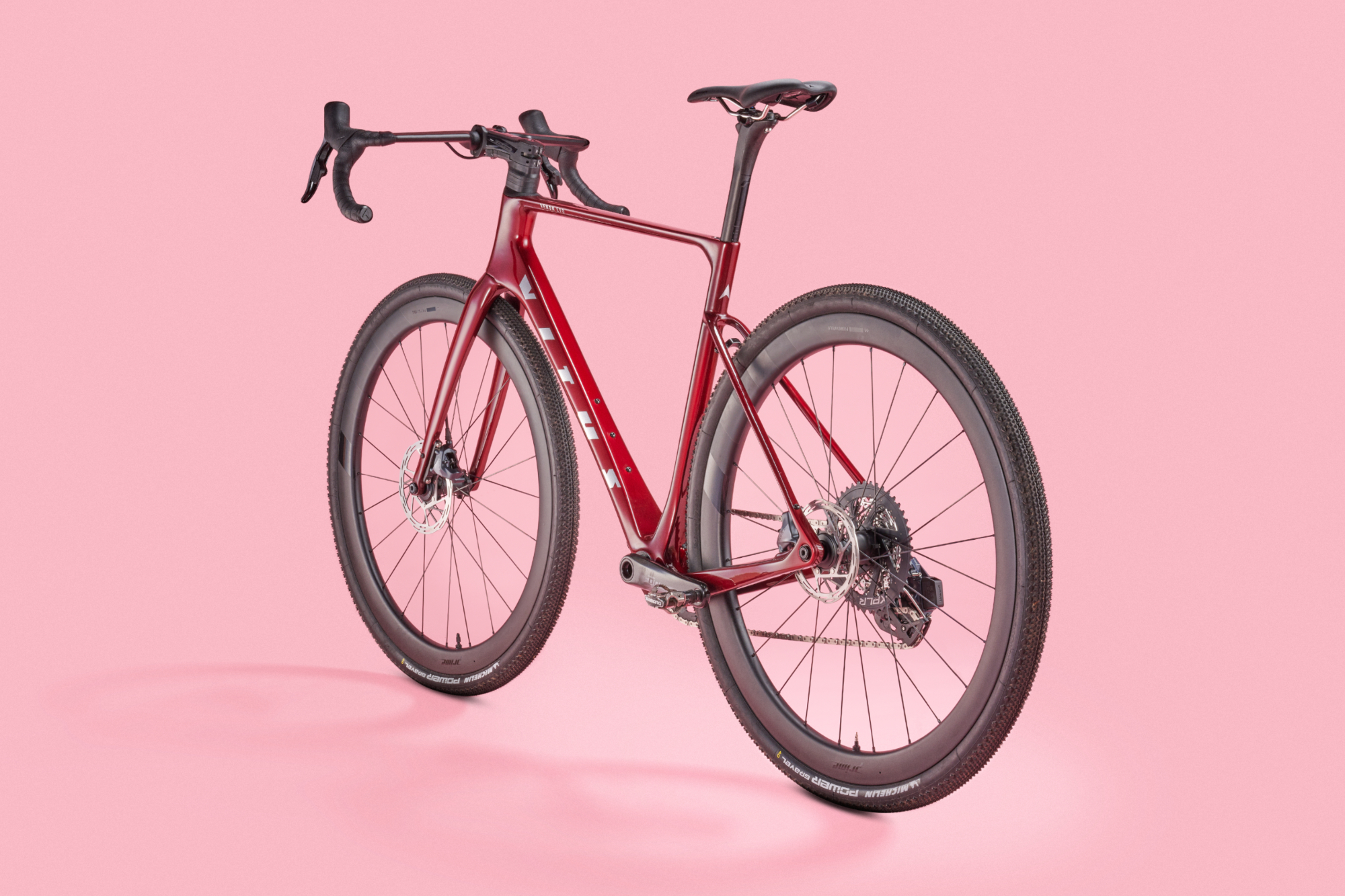
The 'Evo' tag denotes Vitus' highest performance bikes in each of their ranges. It borrows engineering and technology from their high performance road bikes, as well as aerodynamic design, to create a bike that has speed and efficiency at its core.
It uses a one piece monocoque frame featuring a press fit bottom bracket, M12 bolt through axles, as well as integrated cable routing which allows mechanical groupsets to be fitted as well as electronic ones.
The dropped seat stays have been designed with a forgiving carbon layup to allow some give when the road surface becomes less than ideal and a 27.2mm diameter seat post can also allow a small degree of flex for comfort too.
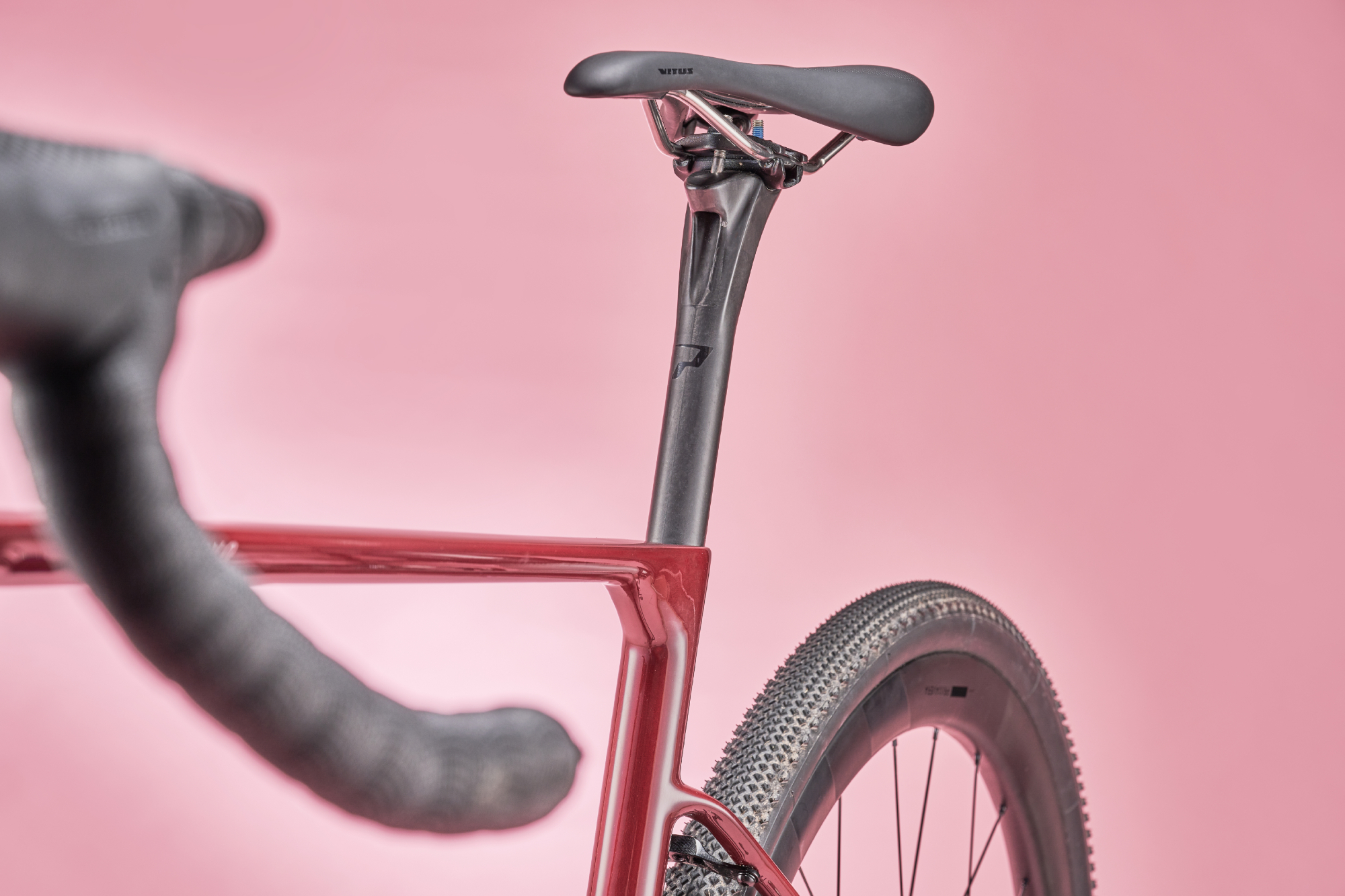
The geometry settles in between the more aggressive Evo road bikes and the slacker Substance adventure gravel frame. The Medium frame (on test) has a head tube angle of 71.5 degrees and the seat tube is set at 73.8 degrees.
Vitus Venon Evo Force AXS gravel bike: the ride
My first impression of the Evo Gravel was how striking it looked in its Black Cherry (deep red) paintwork, and how the deep rims and tires made it look really purposeful. The 40mm Michelin Power Gravel tires were already tubeless.
The bike weighed in at 7.9kg without pedals, I then fitted some Shimano PD-M520 pedals and was nearly ready to ride. However, I struggled a little to find a place to fit my usual front light bracket and head unit. There is minimal round bar space (circa 13mm either side of the stem) so I opted to use the stem itself to fit a head unit using its rubber bands and baseplate option.
Out on the road the bike rode very nicely, it was smooth with the wheels and tires rolling efficiently. They dealt with terrible tarmac sections excellently. The small block tread didn't seem to be draggy, as can sometimes be the case with 'knobbly' tires. I enjoyed my experience riding with the SRAM Force 1x12, and its 'up the cassette' shifter button being on the left brake and the 'down' being on the right side felt intuitive.
There was some wind that day and when a gust of side wind hit me I felt the front wheel skip to the side. I guess that's to be expected with a total section depth of 83mm. The riding position felt very balanced to me, not too race oriented with a low front end, but equally not too easy going with a more upright position. In fact, for me, it was the perfect setup.
On another ride, I took the Evo Gravel, while a CW colleague rode the Evo Road version. The frameset is the same, but the road has 28mm tires on shallower rims and had a Shimano 105 Di2 12-speed groupset. We were surprised at how evenly matched they were overall. The Gravel was slower but only by a small amount, primarily due to the tires being a little less efficient and, no doubt, with him being a stronger rider than me!
On another ride I decided to do some traditional cross-country routes, and a friend with a Genesis Croix De Fer adventure gravel bike joined me. For this ride I set the tire pressure a little lower, to gain a little more traction when needed. It was interesting to swap bikes part way round, as the Genesis felt more relaxed geometry-wise and a little more upright in its riding position compared to the Venon Evo, which was more of a road position.
As much as I enjoyed trying the Genesis out I couldn't wait to get back on the Venon! I was impressed with how the Venon Evo-GR coped with terrain that it shouldn't be able to ride particularly well. It coped with big sections of bridleway mud well. You couldn't just paddle your way out as the tread is too fine to allow that, but if you picked a good line and fired it at the mud you could skate over the top.
Off-camber tree roots weren't easy as the tread isn't purposed for it, but it dealt well with all of the cross-country challenges I threw at it. Remember, this is designed for well-groomed fast gravel tracks, and the fact that it can cope with gloopy Surrey mud in a wet April is to be applauded. The tread cleared itself very quickly once you were back on gravel or tarmac too.
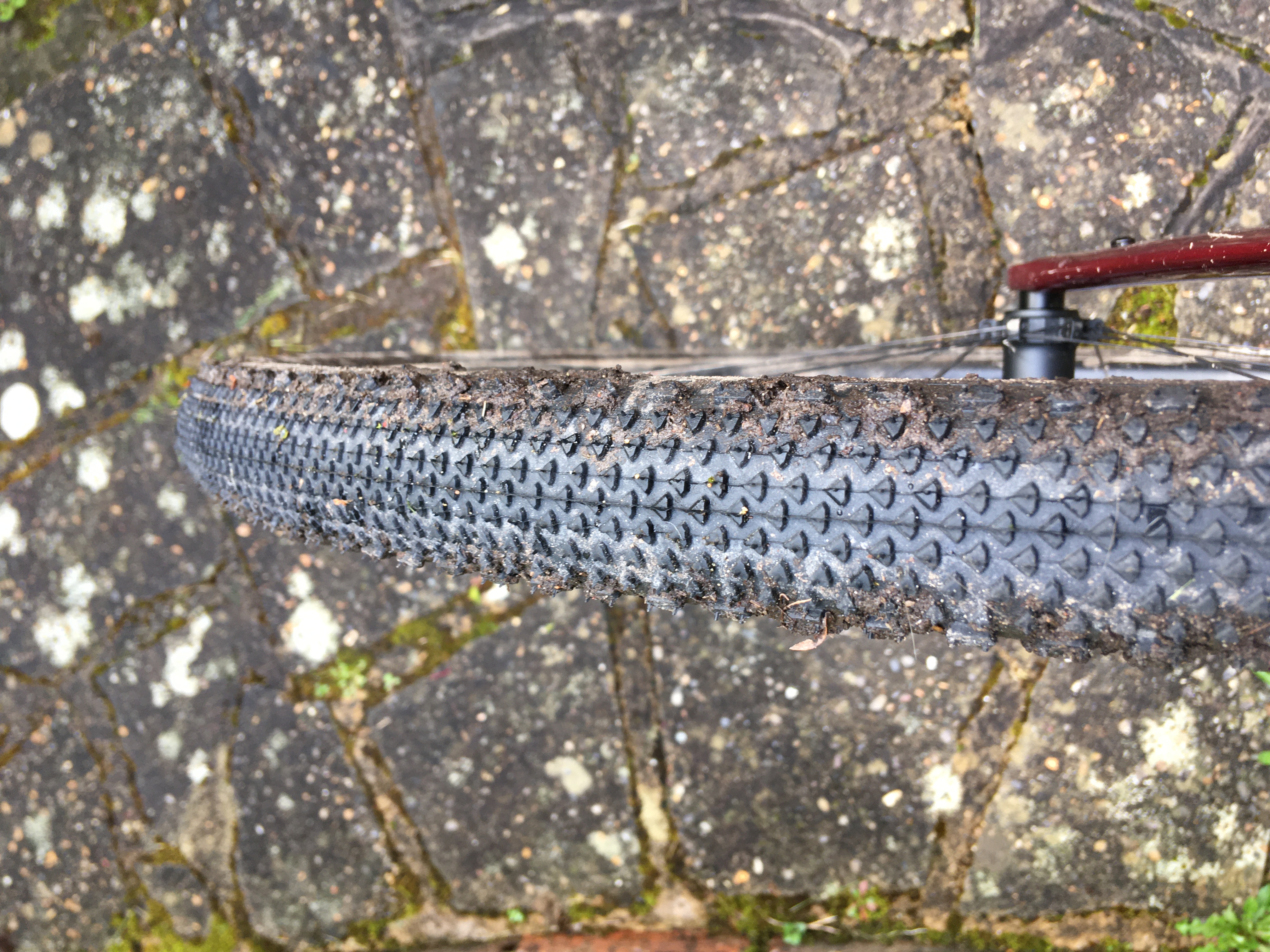
The 1x12 gearing range is good, albeit that the steps are a fraction wider than ideal for fully road use. First gear (44t/44t) is roughly 28 gear inches, which is easy for road use, but off road when you're used to 18" gears it's a little tall. So you can't expect to winch your way up a steep slope. However, as the bike is so light and responsive, you are able to power your way up those slopes.
I was deliberately trying out the limits of the bike beyond its stated niche and it handled everything that I threw at it. The brakes were excellent too, they were smooth and modulated well. There was occasionally a squawk from them, but I put this down to them bedding in and maybe needing a tweak by adjusting the caliper position. Quite normal, I felt.
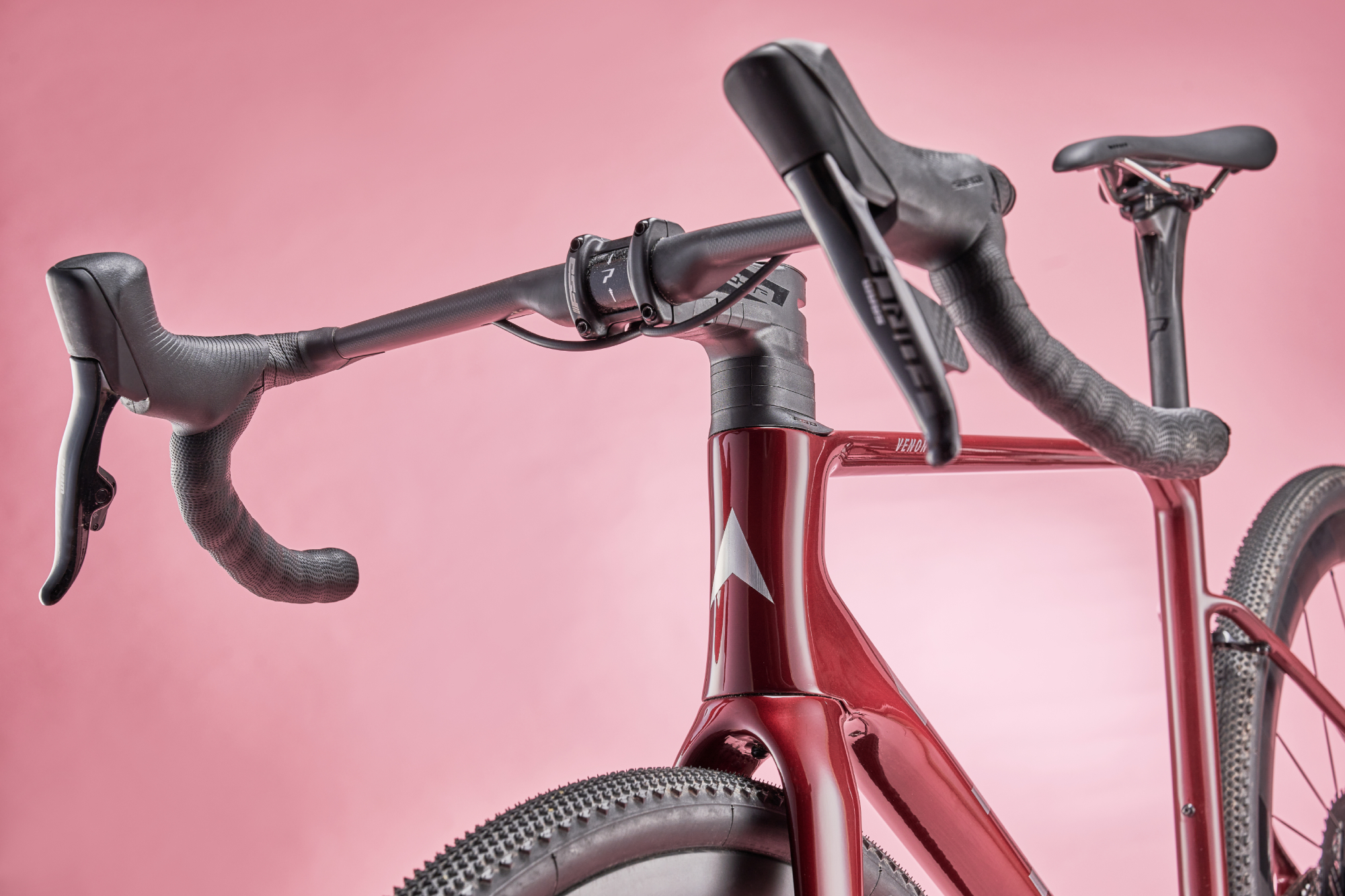
The Aero bars were in many ways excellent too. They measured 410mm (centre to centre) on the hoods and flared to 510mm on the drops. They were very comfortable to ride on and I didn't get any hand numbness, which I can get sometimes. I particularly liked riding using the curved section behind the hoods (shown below).
Although I couldn't detect any flex from the bar I wondered whether the blade section allowed some movement, either way a great bar to ride with. However, my issue with the bars was that, there was very little 'real estate' to add clamps or bags.
There is about 13mm of round bar available either side of the stem, so you need a narrow clamp for a light or bike computer. It was impossible to fit a small bag onto the bars, such as the Topeak BarLoader, due to the aero blade shape. Arguably this is not a deal breaker as it is not purposed to do this. However, the Venon Evo Road, which had conventional round section bars could take the bag, and it worked really well...
The stem is interesting as it routes the brake hoses (or cabling) through itself to almost completely hide any cables. All you see is a short section between the exit point on the bars and the underneath of the stem. Very neat. The frame is designed to take full length outer cables (if you're using a mechanical groupset) say Vitus, and they sought advice from a top level team mechanic. As someone who works on their own bikes I appreciate this, especially after some fraught internal cabling battles! Although, of course, the SRAM Force is a fully wireless system and doesn't need to use cables, the entry level groupset of Apex still does.
The seat post uses a wedge instead of a traditional clamp to keep it in place. It has a torque setting of 8-10Nm. I had initially set it to 8Nm and had a little movement from it, so I reset it to 10Nm and it remained solid thereafter. If you don't already have a torque wrench I'd advise getting one, especially with a carbon frame. See: Best torque wrenches for bikes 2023: what to buy and how to use them
The saddle felt a fraction hard initially, but as I didn't notice any issues thereafter it obviously wasn't a problem! It certainly coped with rougher terrain without comment.
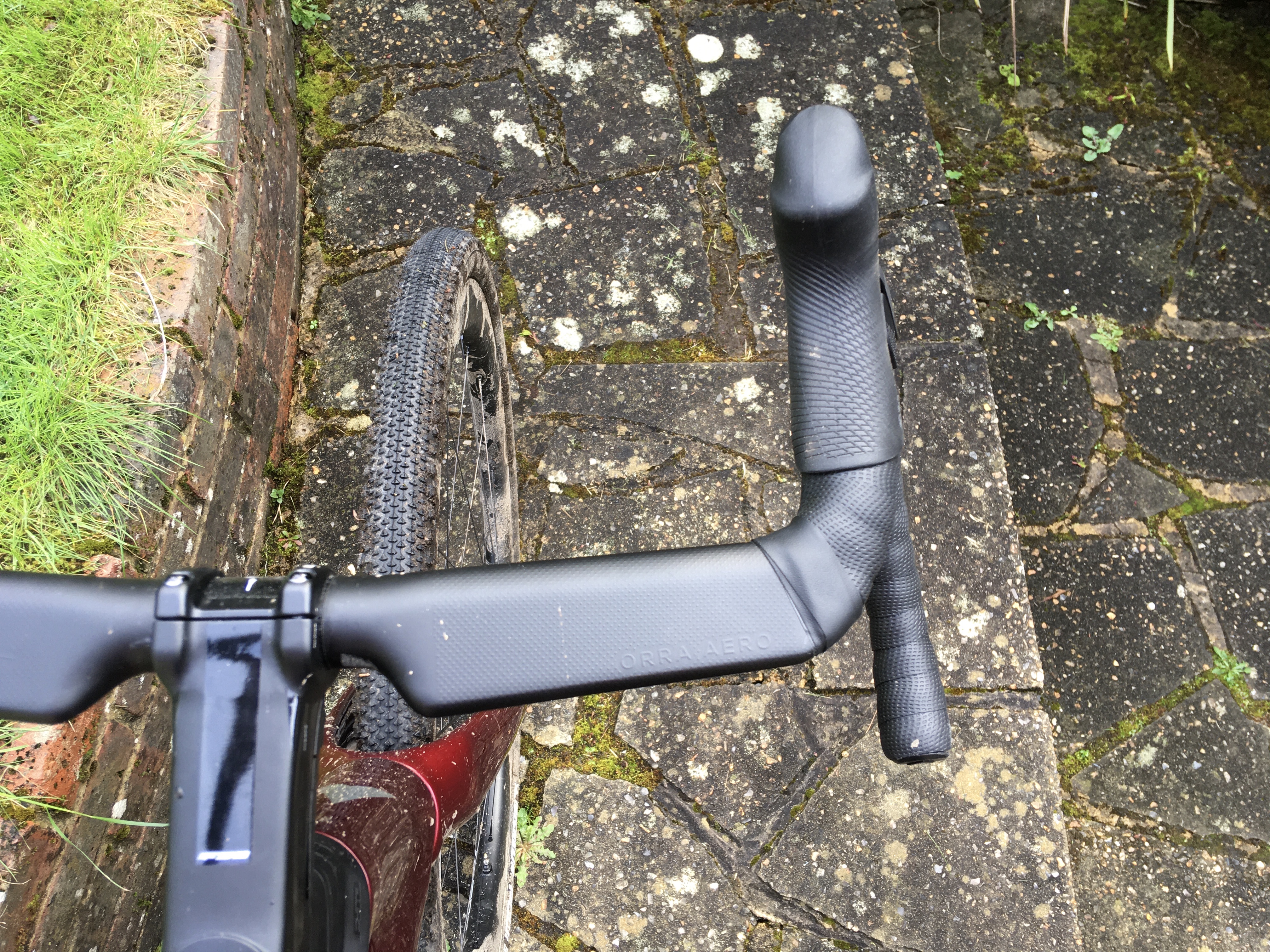
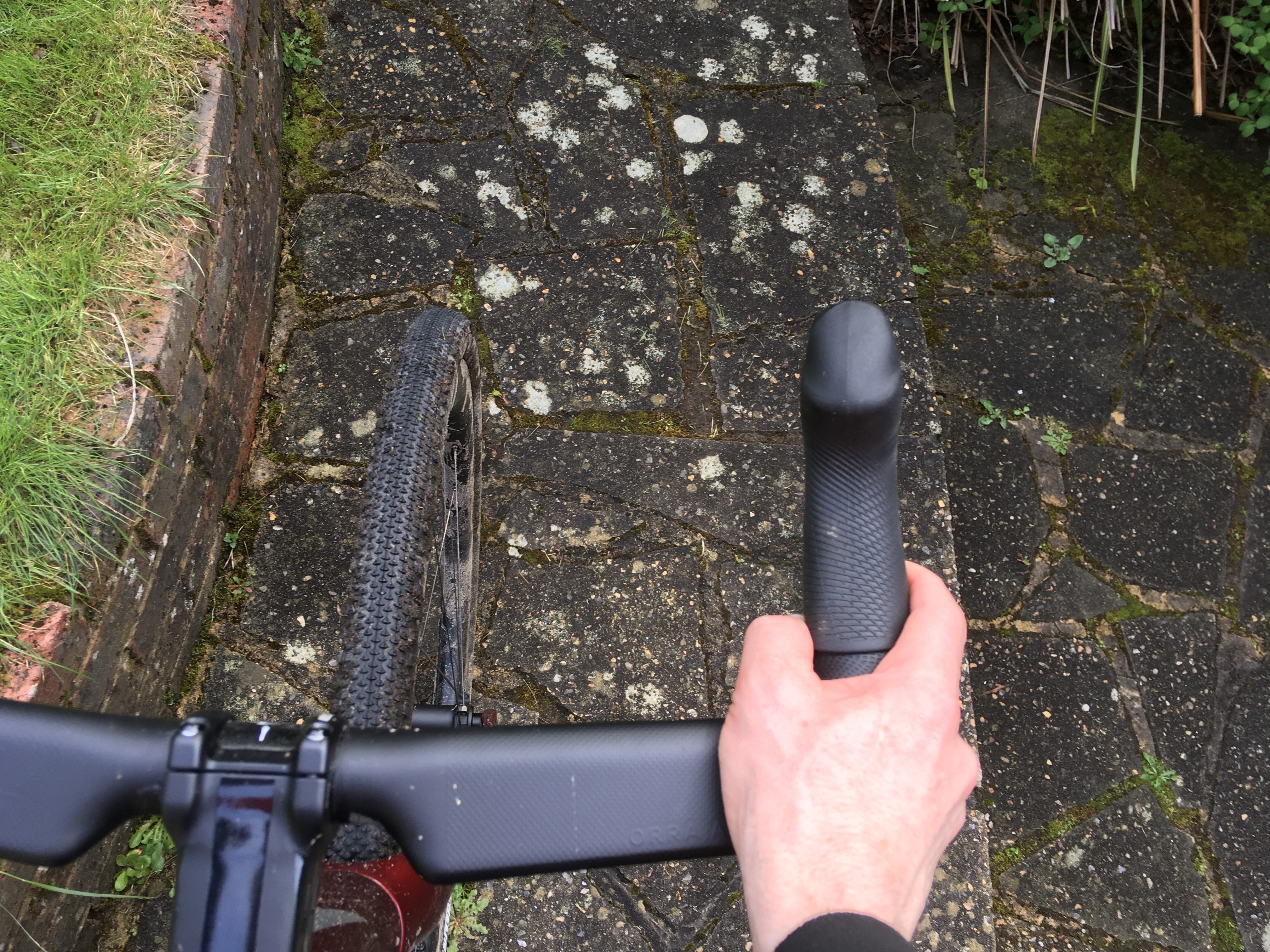
Vitus Venon Evo-GR gravel bike: value and conclusion
Vitus has created a really good bike with the Venon Evo range. Not only is it a great bike to ride, but it comes at an excellent price. The top of the range Venon Evo-GR Force AXS 1x12 (on test) is $4,899 / £4,299.99, with the Rival AXS 1x12 version at $4,099 / £3,499.99 and the Rival Mechanical 1x11 version $3,399 / £2,999.99.
If you consider that the Specialized Crux Comp (Rival Mechanical 1x11) is $4,200 / £4,600 compared to the Venon Evo's equivalent price of c. $3,400 / £3,000 it starts to appear to be a bit of a bargain. You could have the range topping Force version and still be better off...
If you look across to Ribble Cycles CGR SL offering you'll find a similarly spec'd bike for similar money. As I haven't ridden either the Crux or CGR, so I can't offer a riding experience comparison, just an observation on pricing, specifications and purpose.
The Venon Evo approach offers two bikes in one. You can have it in a purely road/endurance specification or you can have it with this gravel (and road) setup. You could quite easily have a second set of wheels or even just change tires to suit the discipline that you want to ride at that time. I find that this versatility of purpose really interesting. Having a bike that can traverse the countryside as well as using the roads is a great way to explore an area too. It is a decently fast way to cover ground using a variety of different routes, and given the state of my local roads, having something that can handle most surfaces seems like an excellent idea.
I always enjoy riding the bikes on test as there is something to be gained from them all, and I'm content when the time comes to hand them back. However with the Venon Evo Gravel, I've rather missed it now it's gone.







